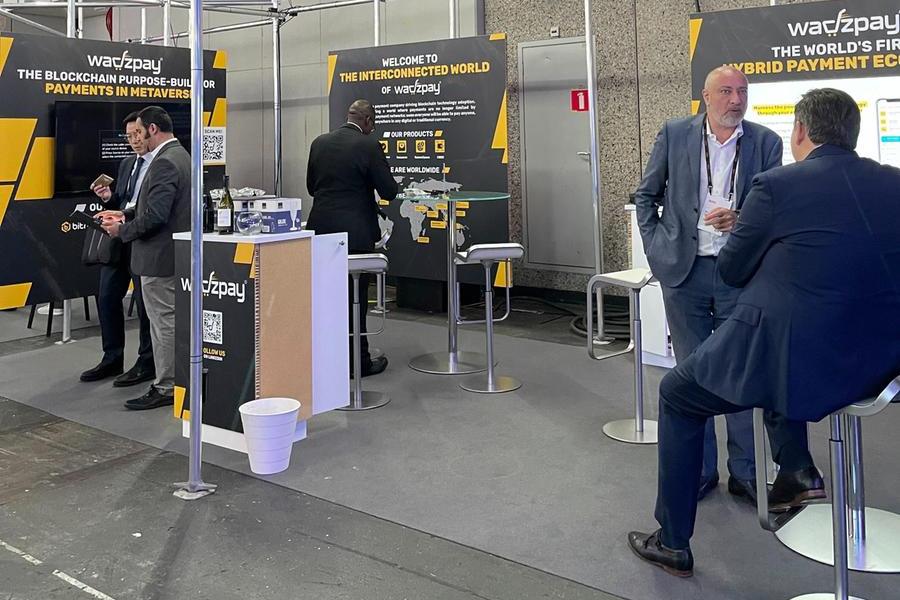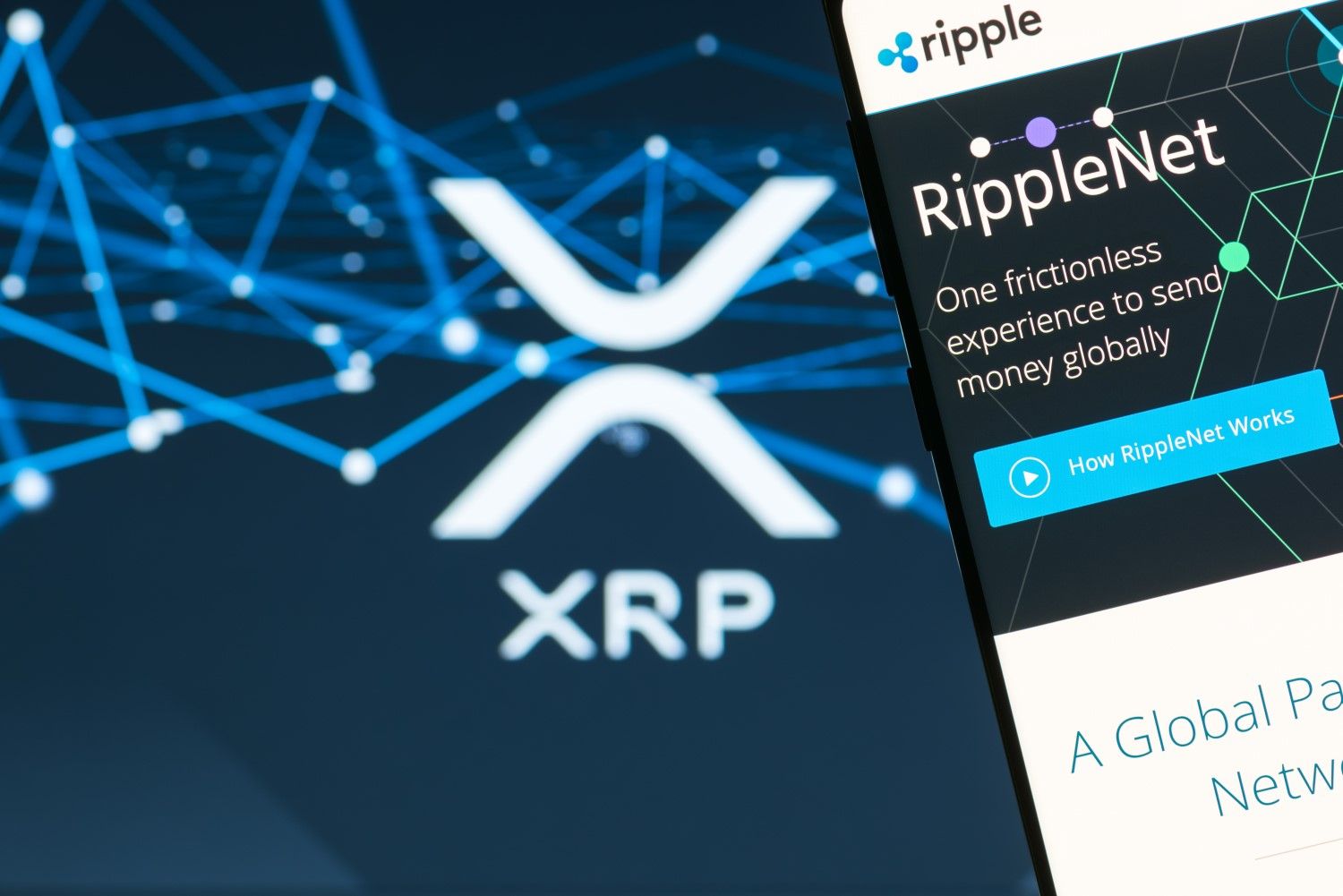Singapore: WadzPay was at the centre of a groundbreaking topic at SIBOS 2022, payments in the metaverse, which addressed the need for banks to be metaverse ready.
WadzPay presented at SIBOS 2022 Payment in the Metaverse: A Huge Opportunity for Banks session delivered by Parv Aggarwal, Associate Vice President – Partnerships. It was a popular session held at SIBOS 2022, on 10 – 13 October in Amsterdam and was in line with SIBOS’s 2022 theme, “Progressive Finance for a Changing World,” attended by leaders from Central Banks, Commercial Banks, Layer 1 DLT providers, and top-tier FinTech startups globally.
This was the first time that WadzPay, an interoperable and agnostic blockchain-based payments ecosystem with a presence in Asia, Middle East, Africa and the USA, participated at SIBOS, showcasing its payments solutions range from Acceptance, Issuance, Remittance, NFT, CBDCs, and more.
According to Brainy Insights, the Metaverse Market is set to surpass US$ 993.86 Billion by 2030. Additionally, NewZoo market researchers found more than 500 companies across the globe in 2022 were working on the metaverse, up from 200 in 2021.
In August 2022, Decentraland launched its first ATM on its metaverse platform. Banks such as JP Morgan, digital bank Quontic, BNP Paribas, KB Kookmin Bank in South Korea, HSBC, DBS bank and even Middle East, including UAE’s Commercial International Bank and Kuwait’s Warba bank and others have all made a debut in the metaverse.
“Banks, payment providers, and businesses are being challenged in the metaverse due to a lack of seamless and frictionless on and off ramping solutions, prohibiting adoption. We at WadzPay are solving this problem by developing and integrating an in-house proprietary system that converts fiat to digital currencies and vice versa, aggregating the maximum number of payment channels and methods.” Parv Aggarwal stated during the presentation.
Banks can transition smoothly to metaverse payments using WadzPay’s token-agnostic blockchain and digital assets payments platform. The platform allows anyone to use any token to pay for any physical and virtual good or service.
“Users won’t need to search for different platforms to manage their digital assets, and businesses will be able to offer the highest service in the metaverse without needing to invest in additional technology. Banks need innovations that are quick to deploy. It’s not about replacing the current infrastructure, which costs a serious amount of investment, but how to amplify what’s already working right for the fiat system and extend the same efficiency to digital currencies. This is why we enable digital currency transactions at incremental cost, cutting development time to 3-6 months and making it easy to implement.” Aggarwal added.
WadzPay interoperability allows different blockchain protocols to communicate actively with each other making the utilization of various blockchain networks in the metaverse easier.
Khaled Moharem, President of Middle East, also joined in discussing Digital Networks & DeFi. He addressed one of the biggest challenges interoperability, whether with cryptocurrencies or CBDCs. The topic is significant given that banks will need to embrace DeFi.
-Ends-
About WadzPay Worldwide
WadzPay is an interoperable and agnostic blockchain-based payments ecosystem. The company was founded in 2018 in Singapore and is currently operating in Southeast Asia, South Asia, the Middle East – Africa and The United States.
WadzPay saw the potential for CBDC and Digital Assets to lead the next revolution in the payments industry: enabling faster payments, improvements in security, and cost-efficiency with optionality. WadzPay is working with large international payment companies, banks, and global companies to enable digital asset-based transaction processing and settlement.
For more information about Payment in The Metaverse and Experimenting with Digital Networks & DeFi, kindly reach out to thepress@wadzpay.com
www.wadzpay.com
Media Contact:
Francisca Adinda
Vice President PR & Communications
francisca.adinda@wadzpay.com
Read More: news.google.com









 Bitcoin
Bitcoin  Ethereum
Ethereum  XRP
XRP  Tether
Tether  Solana
Solana  Dogecoin
Dogecoin  Cardano
Cardano  USDC
USDC  Lido Staked Ether
Lido Staked Ether  Avalanche
Avalanche  TRON
TRON  Shiba Inu
Shiba Inu  Toncoin
Toncoin  Stellar
Stellar  Wrapped stETH
Wrapped stETH  Polkadot
Polkadot  Wrapped Bitcoin
Wrapped Bitcoin  Chainlink
Chainlink  Bitcoin Cash
Bitcoin Cash  WETH
WETH  Sui
Sui  Litecoin
Litecoin  Hedera
Hedera  Pepe
Pepe  NEAR Protocol
NEAR Protocol  LEO Token
LEO Token  Uniswap
Uniswap  Wrapped eETH
Wrapped eETH  Aptos
Aptos  Internet Computer
Internet Computer  USDS
USDS  Cronos
Cronos  POL (ex-MATIC)
POL (ex-MATIC)  Ethereum Classic
Ethereum Classic  Artificial Superintelligence Alliance
Artificial Superintelligence Alliance  Bittensor
Bittensor  Ethena USDe
Ethena USDe  Render
Render  Filecoin
Filecoin  Algorand
Algorand  Arbitrum
Arbitrum  Cosmos Hub
Cosmos Hub  Dai
Dai  Stacks
Stacks  Celestia
Celestia  Immutable
Immutable  WhiteBIT Coin
WhiteBIT Coin